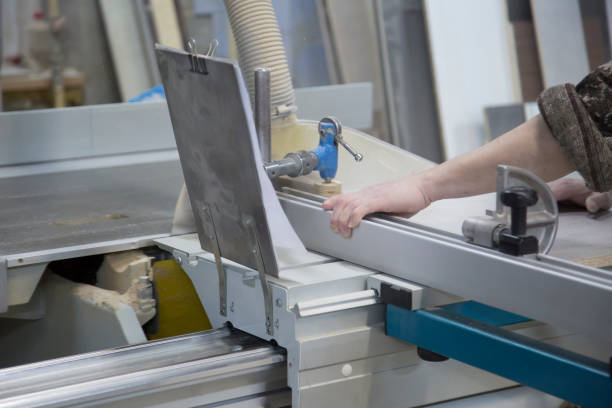Sheet metal finds critical application in contemporary building, engineering, automotive and technology. Whether it is an elaborate aircraft panel or a sturdy housing of medical equipment, the need for professional metal fabrication services is growing exponentially. At the very center of this industrial branch, there is the sheet metal workshop, where raw materials are converted into a complicated and high-performing detail. Whether your company is interested in becoming a partner of the company that provides highest-quality fabrication services or you are simply fascinated about how such facilities work, this handbook will provide you with an in-depth analysis of the kind of activities you will encounter in a modern precision sheet metal facility.
The Core Operations of a Sheet Metal Workshop
The average sheet metal shop is an active and technologically sophisticated place with precision, velocity and efficiency as the trade-grades. Those workshops merge old metalworking with the latest machineries to make components with close tolerances. Here you will discover an assortment of necessary procedures, e.g. laser cutting, CNC punching, press brake forming, welding, and deburring and finishing.
They can work with several machines simultaneously, depending on the complexity of the items, and advanced software systems manage the whole process of design to the final quality control. Technicians and operators working in such places are well trained both in operating the machines and understanding CAD drawings and requirements to reach micrometers in specifications. These operations tend to be working on any order that is custom thus they need flexibility and the ability to deal with problems.
Automation and Technology in the Precision Fabrication
Contemporary precision sheet metal stores are largely dependent on automation and smart technologies to achieve a great deal of consistency and efficiency. The shop floor is populated with CNC (Computer Numerical Control) machines that can cut and punch lasers with outstanding speed and precision. Such machines are commonly associated with ERP (Enterprise Resource Planning) and CAD/CAM tools that provide real-time transfer of data among the design, production and the inventory processes
. A combination of robotics in the welding process and material handling only diminishes the margins of error and makes the workplace even more substantial. In most situations, there is also the presence of automated storage systems incorporated in a sheet metal workshop which monitors the consumption of materials as well as stock in the workshop making efficiency much higher. This technological strategy enables precision fabricators to ensure that they can work on large scale projects without compromising on accuracy and customization that is required by today in the industry. Because of this, there is an improvement in turnaround time, wastage reduction, and improved end product quality on the part of the client.
Customization Ability and Material knowledge
In sheet metal projects, a wide variety of materials are usually used such as stainless steel, aluminum, copper, brass, galvanized steel among others. All the materials act differently in response to stress, heat, pressure and therefore, a profound knowledge on metallurgy is a must. Within one of the sheet metal factories, there are some technicians and engineers who collaborate directly with each other in order to select an appropriate material to be used in a specific application. Corrosion-resistant outdoor enclosures can be made out of metal or lightweight aluminum can be used to manufacture aerospace components. Most shops provide full customization where a client can choose not only material, but also thickness, finish, and hole pattern, and even branding aspects such as laser etched logos. Precision shops have gained the reputation as being able to switch easily between prototype runs in low quantities to the mass production runs. This is why such industries as telecommunications and auto industry, as well as renewable energy sources usually call upon precision sheet metal shops and collaboration of such sheet metal workshops that could make the innovative designs stand on their own.
Quality Control and Inspection Standards
The core of every respected sheet metal workshop has quality control. All steps of the fabrication are checked so that the components would be of high dimensional and performance standards. This consists of in-process checking with calipers, micrometers and laser measuring equipment, and final inspection commonly including coordinate measuring machines (CMMs) and optical comparators.
More often than not, precision sheet metal stores are certified to standards like ISO 9001 or AS9100 and their quality management organizations are audited and kept to international standards on a regular basis. In addition to measurement, most workshops provide documenting services that include but are not limited to material traceability and process validation, and First Article Inspection Reports (FAIR), which are now required even in non-regulated industries such as the aerospace industry and the healthcare industry. Strict qualifications do more than secure the final user; they also assure clients that their parts will be performing as they are supposed to each and every time.
Collaboration, Communication, and Continuous Improvement
Sheets metal workshop value communication and collaboration, which is one of the least regarded features of this type of workshop. The meaningful production on the one hand can depend on the machinery and equipment, on the other hand, it can be achieved based on the collaboration of designers and engineers and machinists as well.
Once a project is quoted the tight liaison will be between the two, and the end result delivered after delivery documents are all designed with full knowledge of the intentions and abilities to manufacture. Lots of non-manufacturing services are also available, such as design-for-manufacturability (DFM), in which the engineers in the workshop will look over the files of the clients and propose some optimizations that will cut all or some of the costs, or enhance the functionality.
The third goal of the workshop activities is meeting continuous improvement with lean manufacturing methods, kaizen events and feedback loops. Precision sheet metal shops ensure sufficient demand and gain an industry that constantly changes by instilling the culture of innovation and responsiveness. Such a futuristic attitude is particularly significant in such areas as EV production and smart infrastructure, where the changing product designs and short time constraints apply.
To sum up, a contemporary sheet metal workshop is something way beyond the shop where metal is cut and bent. It is a technology-intensive perfection-oriented place where creativity unites with work. Fitted with state of art machinery, world class professionals, stringent quality assurance system, and customer focused objectives, modern precision sheet metal specialty stores are now crucial in the development of industries where nothing short of perfection is acceptable.
You can be in aerospace, medical technology or electronics, but the decision of selecting the right workshop can make or break your product launch whether it will succeed or cost you delays at a very expensive price. Knowing what goes on in these facilities will enable you to make more intelligent sourcing decisions and more importantly, keep your designs in good hands.
Want to Contribute content on my Website Visit : Write for Us Section





